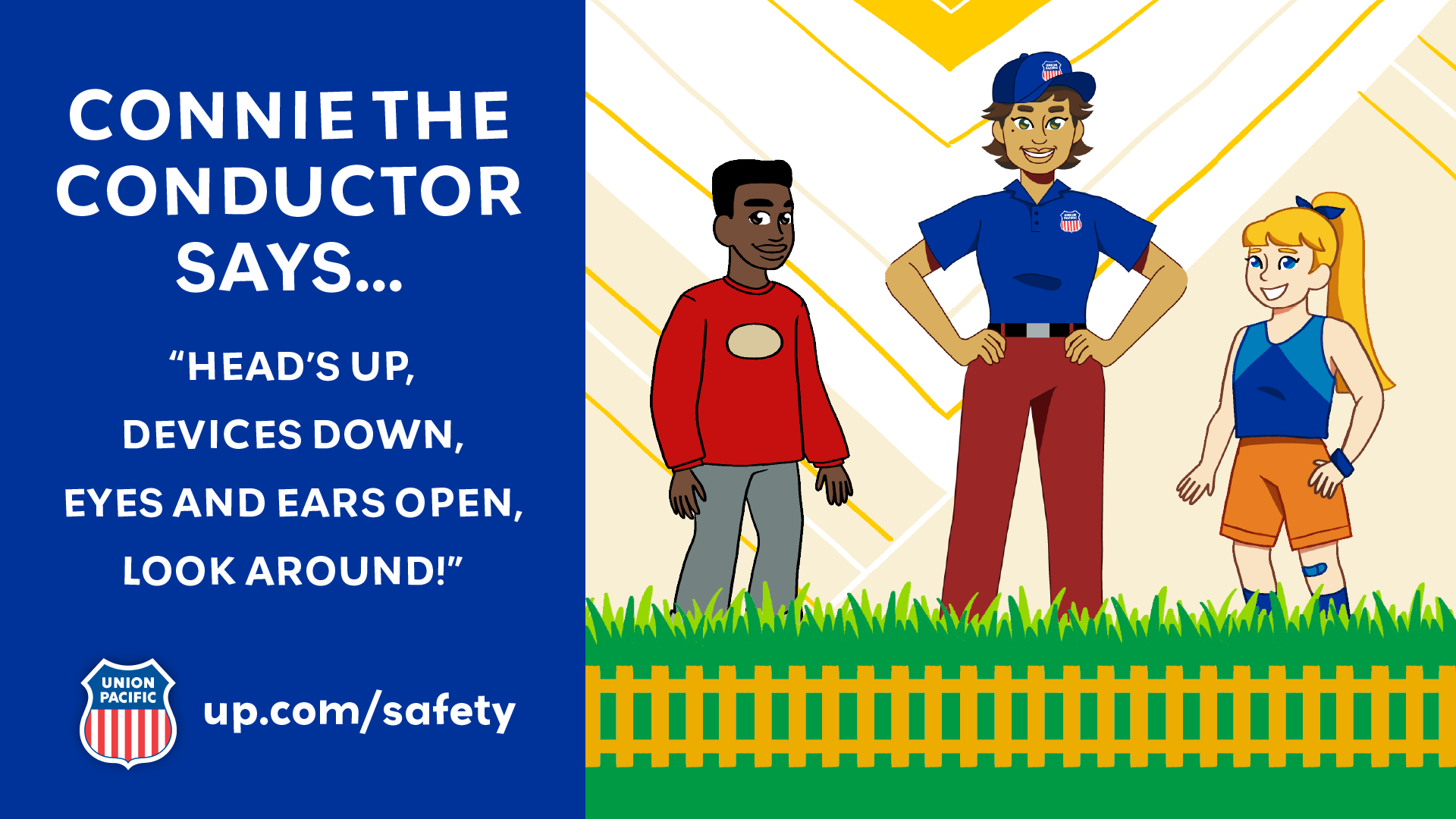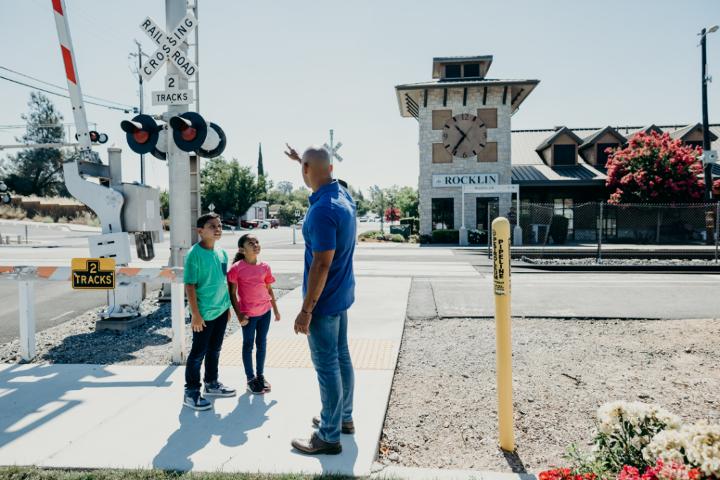Rail Safety for Parents and Caregivers
Trains and kids go together like peanut butter and jelly. There’s something about “choo-choos” that draws them in, and parents can take advantage of this love, stressing how important it is to be safe around train tracks, while being a good role model themselves.
Children under 10 years old should cross the tracks with an adult. Every child is different, but developmentally, it can be hard for kids to judge speed and distance of a train until age 10.
Five Things to Teach Your Children
- Always look both ways. Trains can come from any direction, at any time.
- Only cross railroad tracks at a designated crossing. Designated crossings are marked by a sign, lights or a gate.
- If lights are flashing or the gate is down at a railroad crossing, wait for the train to pass completely and the gate to go back up before crossing. It is never okay to try and beat the train.
- Don’t be tempted to walk on or along the tracks. Trains are at least three feet wider than the tracks on either side.
- A train can take up to a mile to stop. By the time the locomotive engineer sees someone or something on the tracks ahead; it is too late to stop.


- Railroad Safety Educational ToolkitIn partnership with TPT Now
- Chuggington's Rail Safety PledgeIn partnership with Safe Kids Worldwide
- Rail Safety StationIn partnership with Safe Kids Worldwide
Parents and Caregivers of Teenagers
Teenagers are growing up in a different world. Cell phones cause them to be more easily distracted, and that leads to greater risk, especially for new drivers.
Five Things to Teach Your Teens
- If you are using a cell phone, headphones or playing a game, remember: heads up, devices down when you cross the tracks.
- Only cross railroad tracks at a designated crossing. Designated crossings are marked by a sign, lights or a gate.
- If lights are flashing or the gate is down at a railroad crossing, wait for the train to pass completely and the gate to go back up before crossing. It is never okay to try and beat the train.
- A train can take up to a mile to stop. By the time the locomotive engineer sees someone or something on the tracks ahead; it is too late to stop.
- Allow enough space for your vehicle to completely clear the entire railroad crossing, not just the tracks, before you attempt to cross. Remember, trains are at least three feet wider than the tracks on either side, so even though you clear the tracks, you may still get hit by the train.
Teens in the Drivers Seat
Teens in the Driver Seat® is the first peer-to-peer program for teens that focuses solely on traffic safety and addresses all major risks for this age group.
Teens help shape the program and are responsible for implementing it and educating their peers and parents; Texas A&M Transportation Institute (TTI) provides the science, guidance and project resources.
Teens in the Driver Seat® is available to high schools in 15 states. Additionally, the junior high school program is available in Georgia, Nebraska, and Texas.
Photos on Railroad Tracks?
Whether it’s a silly selfie or a photo with friends, taking pictures on train tracks is more than illegal – it can be deadly. Walking on train tracks is always dangerous and avoidable. Picture this: It’s a clear, quiet day and you find yourself in a scenic area on a railroad track. Think you’ll hear or see an approaching train? Think again. Most of a train’s sound is behind it, so you might not hear it until it’s too late. Always put your safety first and expect a train at all times.
This is a great way to get the conversation started. Find more railroad safety tips to protect your child from our partners at Safe Kids Worldwide. Union Pacific is proud to work with Safe Kids Worldwide.
